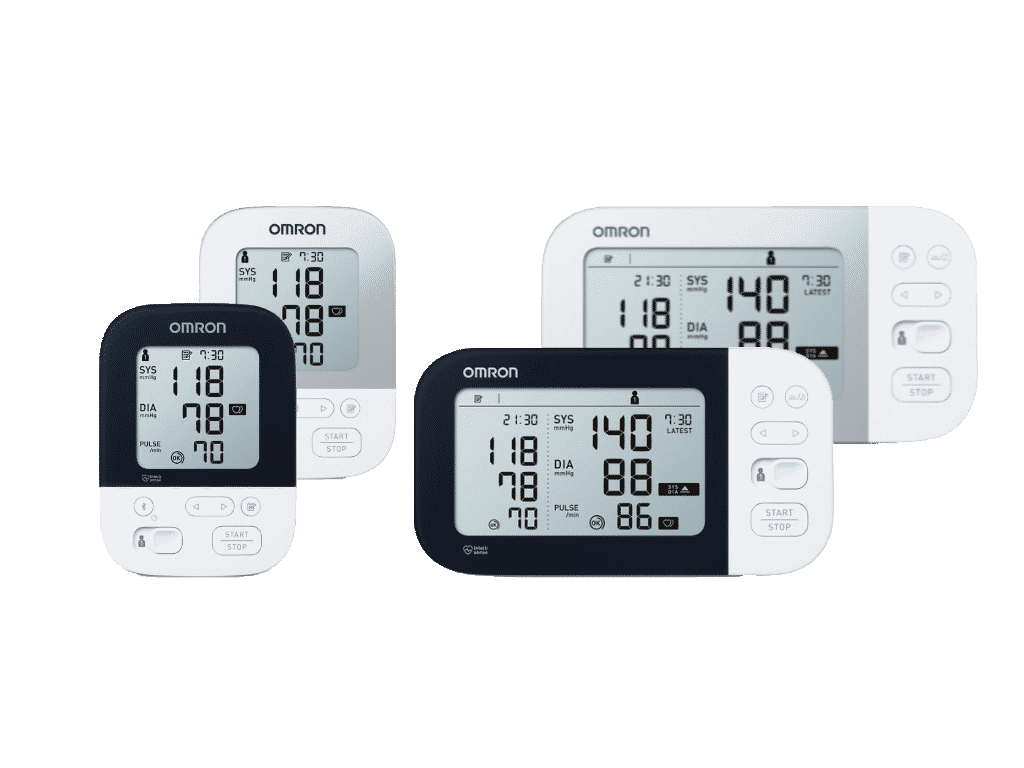A cardiac arrhythmia is a recurring abnormality in the rhythm of the heartbeat. It is an abnormality in the stimulus conduction system, an electrical network that controls the pinching movement of the heart muscle. This can cause the heartbeat to be too fast, too slow or irregular.
Your heart rate is constantly adjusting. For example, you have a low heart rate when you sit quietly and a high heart rate when you are very active or emotional. Only if your heart rhythm in such situations is different than you expect, can this indicate a heart rhythm disorder.
There are several deviations:
- the heart beats too fast;
- the heart beats too slowly;
- the heart beats irregularly;
- the atria and ventricles do not work well together
Different Types of Cardiac Arrhythmias
Cardiac arrhythmias come in all shapes and sizes. A rhythm that is faster than normal is called a tachycardia, a rhythm that is slower than normal is called bradycardia. The terms come from the Greek: tachus = fast, bradus = slow, cardia = heart. The arrhythmia may also be irregular or completely chaotic and may occur continuously or in attacks. Cardiac arrhythmias can affect the pumping power of the heart, but they are often quite harmless.
The most common cardiac arrhythmias are listed below:
A too fast and irregular heart rhythm (fibrillation)
Fibrillation is an arrhythmia in which heart muscle cells contract extremely quickly, irregularly and chaotically. The disorder can originate from the atria (atrial fibrillation) as well as from the ventricles (ventricular fibrillation).
Atrial fibrillation or atrial fibrillation (AFib)
Atrial fibrillation is limited to the atria and is usually not acutely dangerous. The chambers still work quite normally, but are beating irregularly. Some people don't notice this at all. Others may feel that their hearts are racing.
ventricular fibrillation
In ventricular fibrillation, your heart chambers are stimulated quickly and chaotically, so that they no longer contract. With ventricular fibrillation, your heart no longer pumps blood and cardiac arrest can occur. Ventricular fibrillation is much less common than atrial fibrillation and is almost always accompanied by other heart problems.
A heart rhythm that is too fast (tachycardia)
A tachycardia is a heart rhythm in which the heart beats at rest at a rate of more than 100 beats per minute. Tachycardia can have many causes. It can be a normal response to stress or physical exertion. Other causes can be dehydration, malnutrition, anemia or a deficiency of Vitamin B1. The use of certain stimulants, such as coffee, amphetamine, or cocaine, can also cause tachycardia. Tachycardia can also occur within 15 to 30 minutes after ingestion of alcohol due to an increased acetaldehyde concentration. Depending on the underlying cause and the patient's condition, tachycardia can be dangerous and must be treated.
A heart rhythm that is too slow (bradycardia)
Bradycardia is a heart rhythm disorder (disorder in the rate at which the heart beats) in which the heart rate is less than 50 beats per minute. Bradycardia is usually not dangerous. However, if too little blood is pumped around and the body does not receive enough oxygen and nutrients, complaints can occur, such as fatigue, dizziness and shortness of breath. In healthy people (especially those in good shape), the resting heart rate can be less than 50 beats per minute.
Causes of cardiac arrhythmias
Factors that can cause cardiac arrhythmias include:
- old age;
- high bloodpressure;
- an overactive thyroid gland;
- a heart attack in the past;
- cardiomyopathy (heart muscle disease);
- heart failure;
- heart surgery;
- the use of certain substances such as tobacco, alcohol and drugs;
- a congenital heart defect.
Complaints heart rhythm disorder
Complaints that occur with cardiac arrhythmias are:
- palpitations;
- heart pounding;
- heartbeats;
- a painful or tight feeling in the chest;
- to sweat;
- nausea;
- dizziness;
- a light-headed feeling;
- an unpleasant, anxious or oppressive feeling.
What to do in case of complaints?
Do you often feel palpitations or skips or is your heart rate very high or very low? Then always go to the doctor. It checks your heart rate with, for example, a heart film. Sometimes more extensive research is needed. Then you know whether your heart rhythm disorder is harmless or can be dangerous. And so must be treated.
Even if the doctor has determined that your arrhythmia is harmless, you can still suffer a lot from the arrhythmias. Then discuss whether lifestyle adjustments or medication are necessary.
With small lifestyle changes it is sometimes possible to reduce the palpitations. For example, by drinking less coffee or alcohol, by stopping smoking or by avoiding stress. Sometimes further investigation is needed. If the cause is unclear, a diary can help to gain more insight into the possible cause of the palpitations.
Atrial fibrillation (AFib), bradycardia and tachycardia detection with blood pressure monitors
There are several blood pressure monitors for sale in our webshop with special detection for atrial fibrillation (AFib). Recently there are also blood pressure monitors that can detect bradycardia and tachycardia. During the measurement, these blood pressure monitors indicate whether an irregular heartbeat is detected and whether this is subsequently AFib, bradycardia or tachycardia. A symbol will then light up on the screen. If this happens regularly, it is wise to consult your doctor or doctor. He or she can then further investigate your complaints. In order to detect atrial fibrillation with a blood pressure monitor, a multiple measurement must take place. The blood pressure monitor then automatically measures the blood pressure several times. Between each measurement there is a rest period of 15 to 30 seconds.
At Blood pressure meter.shop you can buy the following blood pressure monitors with AFib detection:
- Omron M6 Comfort AFib Upper Arm Blood Pressure Monitor
- Microlife BP B6 Connect AFib Upper Arm Blood Pressure Monitor
- Rossmax X5 BT upper arm blood pressure monitor with AFib detection
- Rossmax Z5 upper arm blood pressure monitor with AFib detection
- Microlife BP B3 AFib Upper Arm Blood Pressure Monitorr
- Omron M7 Intelli IT AFib Upper Arm Blood Pressure Monitor
We have also recently introduced blood pressure monitors that detect bradycardia and tachycardia in addition to AFib (Atrial Fibrillation). These are the:
- Rossmax X9 professional upper arm blood pressure monitor
- Rossmax X9 BT Professional Upper Arm Blood Pressure Monitor


